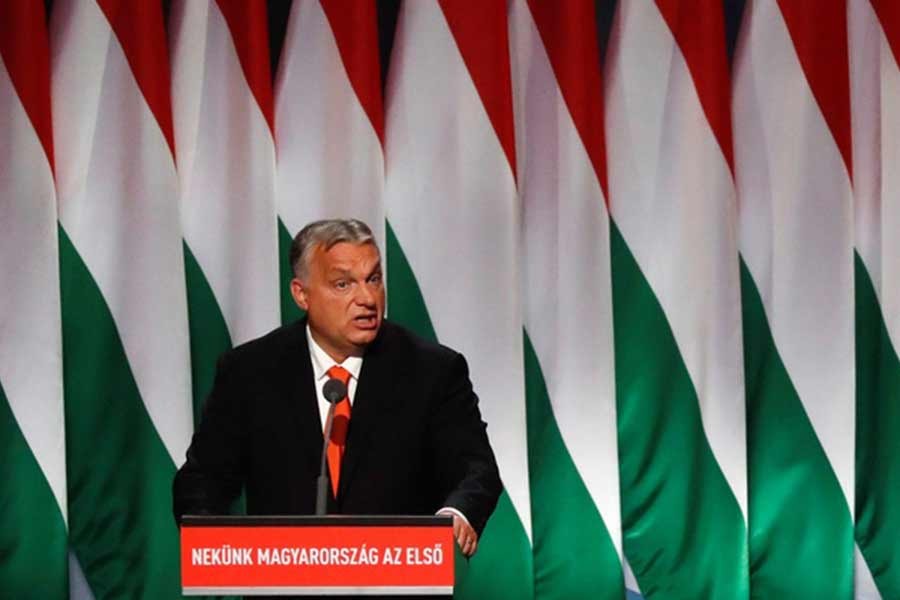UN expert raises concerns over media freedom in Hungary ahead of election

Published :
Updated :

The United Nations' top expert on freedom of opinion and expression expressed concerns about a "distorted media environment" in Hungary, saying on Monday that reporting around elections due next year must be fair and impartial.
UN Special Rapporteur Irene Khan also told reporters during a visit to Budapest that the "freedom of expression which political candidates have should not be abused to create a toxic environment of violence (and) hatred".
Allies of Prime Minister Viktor Orban's Fidesz party control large parts of Hungary's private media, while the public media largely serves as a government mouthpiece. Dozens of newspapers and broadcasters that had criticised Orban have changed hands in recent years.
His government has repeatedly denied undermining press freedom. It did not respond to emailed Reuters questions on Monday, reports Reuters.
"I see a distorted media environment in Hungary where pluralism, diversity and independence of media are being questioned," Khan said.
"Therefore it is important to ensure that in the context of the elections, there is fair reporting, there is access to all the candidates on a fair and equal basis, and that public service media ... maintains an impartial approach to the different parties and candidates."
Next year's election will be the first in which Orban has faced real competition since sweeping to power in 2010.
His nationalist party has increasingly appealed to conservative voters by rejecting western liberalism and multiculturalism, and Orban has ramped up his rhetoric this year regarding LGBT people and immigrants.
UN rapporteur Khan also echoed European Commission concerns that state advertising is being channelled to pro-government outlets, leading to indirect political influence over the media.
The highly skewed distribution of state funds for advertising has "major consequences, not only for the health of the media sector but also for democratic freedoms that independent media nurture", she said in a statement on Monday.


 For all latest news, follow The Financial Express Google News channel.
For all latest news, follow The Financial Express Google News channel.